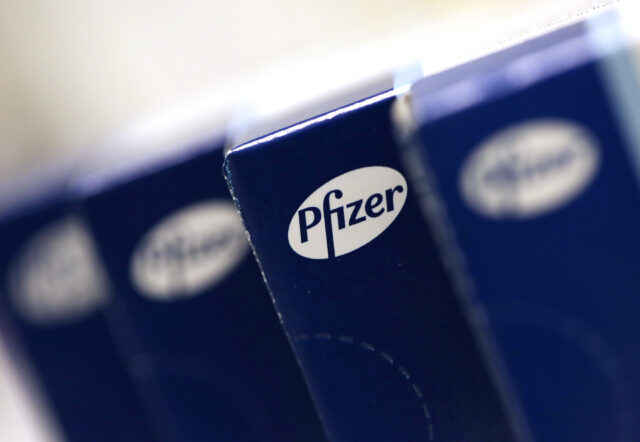
Pfizer, a pharmaceutical giant with a significant global footprint, has long dominated various medical markets, including vaccines, oncology, and cardiovascular medications. One of its flagship domains is the heart medication market, where its products have helped millions manage conditions such as high cholesterol, high blood pressure, and other cardiovascular diseases (CVDs). However, Pfizer’s dominance in this space is becoming the subject of intense scrutiny and conflict. Competitors, health advocates, regulatory bodies, and governments are raising concerns about the company’s market practices, pricing, and the broader implications of its control over a vital sector in public health.
This essay will examine the nature of Pfizer’s dominance in the heart medication market, the key players challenging its position, the ethical and economic implications of its pricing strategies, and the potential outcomes of this conflict.
Pfizer’s Position in the Heart Medication Market
Pfizer’s dominance in the heart medication market stems from several blockbuster drugs that have become household names in cardiology. Perhaps the most well-known is Lipitor (atorvastatin), a statin used to lower cholesterol, which became one of the best-selling drugs of all time. Although Lipitor’s patent expired in 2011, Pfizer’s grip on the market has not waned, as the company has continued to develop and market other highly effective cardiovascular drugs. Eliquis (apixaban), an anticoagulant used to reduce the risk of stroke and blood clots in people with atrial fibrillation, is another blockbuster medication that has helped solidify Pfizer’s dominance.
Pfizer’s success in the cardiovascular space is not just due to effective products, but also its global reach, sophisticated marketing strategies, and ability to navigate regulatory landscapes. The company invests heavily in research and development (R&D) and clinical trials, allowing it to consistently produce cutting-edge treatments that outperform competitors. Furthermore, Pfizer’s extensive supply chain and distribution networks ensure its products reach nearly every corner of the world, reinforcing its market presence.
However, Pfizer’s dominance has come with criticism. Competitors and health advocates argue that the company engages in aggressive pricing strategies, leveraging its position in the market to set prices that are often seen as exorbitant. Critics also accuse Pfizer of using its vast resources to stifle competition, whether through legal action or by securing extended patents, a practice known as “evergreening.”
Leveling the Playing Field: Fair Access to Heart Medications for All”
The Rise of Competition and Pushback
In recent years, a number of generic drug manufacturers and smaller pharmaceutical companies have begun to challenge Pfizer’s stronghold in the cardiovascular market. Generic drug companies argue that Pfizer’s continued dominance is due not to innovation but to its ability to exploit the patent system. By filing for minor adjustments in dosage or formulation, Pfizer has been able to extend patents on some of its major drugs, preventing cheaper generics from entering the market. For example, Lipitor’s patent protection was extended multiple times, allowing Pfizer to maintain a competitive edge long after the initial patent expired.
Generic manufacturers are not the only ones pushing back. Other pharmaceutical companies are developing their own cutting-edge cardiovascular treatments and seeking to break Pfizer’s hold on the market. For instance, companies like Amgen and Novartis are making strides in developing novel therapies that could directly compete with Pfizer’s offerings. Amgen’s Repatha (evolocumab), a PCSK9 inhibitor used to lower cholesterol, is an example of a drug that has been positioned as a next-generation treatment in cardiovascular care. Though it has faced its own challenges in terms of pricing, Repatha represents a new front in the battle for market share.
Additionally, biosimilar drugs, which are almost identical to original biologic drugs, are entering the market, offering a potentially more affordable option for patients. These biosimilars could erode Pfizer’s dominance, especially in markets with more flexible regulatory frameworks, such as the European Union and parts of Asia.
Pricing Controversies and Ethical Concerns
One of the most contentious issues in the conflict over Pfizer’s dominance in the heart medication market is its pricing strategy. Many critics, including patient advocacy groups and public health organizations, accuse Pfizer of engaging in price gouging. For instance, Lipitor, despite being available as a generic, was once priced at levels that made it inaccessible to a large portion of the population. Eliquis, too, has faced criticism for its high cost, particularly in the United States, where drug prices are often unregulated compared to other nations.
In the U.S., heart medications can cost thousands of dollars per year for patients, leading to financial strain, particularly for older populations who are more likely to suffer from cardiovascular diseases. Pfizer’s pricing model has thus been accused of prioritizing profit over patient access, with many arguing that life-saving drugs should not be subject to the same market dynamics as other consumer goods.
Internationally, Pfizer’s pricing strategies have sparked debates about access to essential medicines. In developing countries, where healthcare systems are often underfunded and out-of-pocket expenses are high, the cost of Pfizer’s cardiovascular drugs is prohibitively expensive. This has led to increased calls for compulsory licensing, where governments allow the production of generic versions of patented drugs without the consent of the patent holder, in order to make essential medicines more affordable.
Furthermore, Pfizer’s pricing practices have drawn scrutiny from regulatory bodies. In 2020, the company faced legal action in the UK after the Competition and Markets Authority (CMA) accused Pfizer of inflating the price of an anti-epileptic drug by 2,600% overnight. Although the case was not directly related to heart medication, it underscores broader concerns about Pfizer’s market behavior and pricing strategies across its product lines.
Implications for Healthcare Systems and Patients
The conflict surrounding Pfizer’s dominance in the heart medication market has significant implications for healthcare systems and patients alike. For healthcare providers and insurers, the high cost of Pfizer’s drugs means increased spending, which often gets passed down to patients in the form of higher premiums or out-of-pocket expenses. This can have a ripple effect, as patients may delay or forgo treatment due to cost concerns, leading to worse health outcomes and higher long-term healthcare costs.
For governments, the rising cost of cardiovascular drugs presents a challenge to public health programs, particularly in countries with universal healthcare systems. In countries like the UK, where the National Health Service (NHS) negotiates drug prices, there is growing pressure to push back against pharmaceutical companies like Pfizer in order to secure more favorable pricing for essential medications.
On the patient side, the consequences of high drug prices are often devastating. Cardiovascular diseases are the leading cause of death worldwide, and access to effective medications is critical for managing these conditions. When patients cannot afford the medications they need, they are at higher risk for heart attacks, strokes, and other severe complications. The economic burden of CVDs is already substantial, and Pfizer’s pricing practices exacerbate this burden for individuals and healthcare systems alike.
Breaking the Monopoly: Ensuring Affordable Heart Care Beyond Pfizer
The Future of the Conflict
The conflict over Pfizer’s dominance in the heart medication market is unlikely to abate anytime soon. As more competitors enter the market with generic and biosimilar alternatives, Pfizer may face increased pressure to lower prices or offer more competitive pricing models. Additionally, ongoing regulatory scrutiny, particularly in regions like the European Union, could result in more stringent rules around patent extensions and pricing practices, further eroding Pfizer’s market power.
However, Pfizer’s ability to invest heavily in R&D means that it will likely continue to innovate and develop new cardiovascular treatments, which could maintain its competitive edge. The key question will be whether these new treatments are priced in a way that balances profitability with patient access.
In conclusion, Pfizer’s billion-dollar dominance in the heart medication market has sparked a conflict with wide-ranging implications for competitors, regulators, healthcare systems, and patients. As the debate over pricing and access continues, the outcome of this conflict will shape the future of cardiovascular care worldwide.





